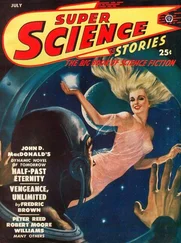Humming once more, she went to her bureau drawer, took out the small picture of Howard Goodkin, took it back to the bed along with her silver fountain pen. Resting the picture face down, she printed certain facts neatly on the back of it.
She put it in the envelope with the other pictures. In the second envelope was a listing of several Chicago banks. Following the name of each bank was the name she had used to open the safety-deposit box, and a statement of the amount of cash in each box.
The third envelope contained the keys to the boxes, each one carefully tagged. On the back of each tag was the date when the box rent would be due. In the beginning she had paid ten years’ rent in advance, and each box had been renewed through the payment of a second ten years’ rental.
She sat on the bed and thought of the wonderful massive vaults, the tightly locked boxes, the neat bundles of cash in each box. A great deal of cash. An enormous amount, she thought, considering the ease with which it had been obtained.
She replaced the packet in the suitcase under the lining, repaired the rent with clean, tiny stitches.
Already there was great delight in thinking ahead to the wreath on the door, the neighbors bringing baked things, the quiet words of comfort. It was so easy to cry when they spoke to her — so easy to play the part of the stricken widow.
Then, after several months of wearing black had gone by and she had begun to tire of her practiced role of widow, she would go to a few selected friends, the ones who would talk, and she would explain how she could no longer remain there where her memories of Howard were so clear and so sharp. She would sell everything and go away. Some letters, a few postcards — and then silence.
They would forget. They always did. Then she would be ready for a new little city, a new man, a new background, carefully memorized so that there would be no slip-up. The eternal delightful gambit of courtship, marriage, setting up a home and making friends. Then, in a year or two — death. It always ended in death.
To be such a friend of death gave her a feeling of power that she bore with her wherever she went. She looked on the dull, tidy little lives of the women in the small cities in which she lived, and she felt like a goddess. She could write all manner of things on the black slate of life, and then, with one gesture, wipe the slate clean and begin all over again. New words, new love, new tenderness and a new manner of death.
She had read of stupid women who poisoned one husband after another. That was the most spectacular stupidity. Through such methods the police were enabled to establish pattern. No, murder, to be successful, must be done with infinite variety — and in ways that could not be connected with the heartbroken little woman who sobbed out her grief to the coroner and to the police.
Whenever she read articles which proclaimed that there was no such thing as a perfect murder, she laughed inside. She sat and laughed without any change of facial expression. And inside of her she felt a glow of triumph.
It was good to kill men. Only one thing sometimes bothered her. To get such joy out of killing men must indicate some psychotic condition. She was a well-read woman, but it was not until after the fourth death that she managed to connect her joy with that half-forgotten incident in the woods near her home when she had been fourteen.
The man had caught her by the wrist, reaching out from beyond a patch of brush as she walked slowly by. He was ragged and he stank of liquor and his filthy hand had muffled her screams.
Sometimes she would wake up in the night and once again feel the hand pressing on her lips.
They had sent him to jail. Shortly after that both of her parents died. As she had looked on their faces she had thought that they were dead and yet that horrible man still lived.
It bothered her that her hatred of men had to be based on a particular incident. She would rather it had been hatred without apparent cause, because it would have seemed cleaner that way.
She married at seventeen. A boy named Albert Gordon. After the first week with him, she knew that one day she would kill him. In killing him she would somehow be exacting her just vengeance.
She married him under her own name — Alicia Bowie. For two years she planned. For two years she endured him, and got delight out of being able to successfully play the part of the happy bride.
Two days after her nineteenth birthday, the papers announced that tragic death of Albert Gordon while on a swimming picnic with his young wife at Lake Hobart. According to the newspaper accounts, Albert Gordon had dived from the high limb of a tree and had misjudged the depth of the water.
She could still remember exactly how it was. The late-afternoon sun slanting across the water. Albert was near her, waist deep in water, looking out across the lake. The tree was above them. She had fumbled on the rocky bottom, found a loose boulder of about ten pounds’ weight. She had held it poised. The shore dropped steeply, and the water, while up to his waist, lapped gently around her legs. She had brought it down on the top of his head. Some of Albert’s blond hair adhered to the rock. She had carefully placed the rock in three feet of water under the limb of the tree, bloody side up. That’s where they had found it.
With Albert’s insurance, she had moved eight hundred miles away. She had changed her name. She had established the pattern.
Now she got up from the bed, showered, put on a crisp cotton dress and raised the shades, filling the house with sunshine. As she listened with part of her mind to a morning radio program, another part, a cold mechanical part, was weighing, discarding, considering alternate methods of accomplishing the sudden death of Howard Goodkin, successful manager of a chain of grocery stores in and around Wanderloo, Ohio.
By lunch time she had cut the feasible methods down to two. Neither of them duplicated any of the previous murder methods. Both of them were carefully selected to fit the habits of Howard Goodkin.
Howard came in for lunch, smiling. He kissed her, patted her affectionately and said, “Anything exciting happen this morning?”
I decided to kill you, Howard. “Not a thing, darling. That dog across the street chased the Robinsons’ cat up into our maple tree and Betty was standing around wringing her hands. When she was about to call the firemen, the dog went away and the cat came down. When she picked it up, it scratched her wrist.”
Howard grinned, his eyes crinkling pleasantly. “Big morning, huh?”
It won’t be hard to weep for you, Howard. In many ways you’re quite nice. “A nice, quiet morning, darling. Is the salad all right?”
“Wonderful, honey! I love it with onion.”
Cristofer, Florida, was a small, inland town, sleepy in the hot sun. Because it was not near the sea, the prices at the tourist courts, shabby hotels and cabins were low. Many old people came to Cristofer to live out what remained of their lives. The men, their work-gnarled hands resting on their thin thighs, dozed in the sun. The buxom and indestructible old ladies lifted shrill voices throughout the endless days and the monotony of the sun.
Ben Lawton, wearing ragged khaki shorts, his bronzed back knotted with muscle, trudged with the wheelbarrow down to where the truck had dumped the load of small, gleaming white shells, filled the wheelbarrow and pushed it back up the slope to the Komfort Court — Cabins by the Season — Reasonable Rates.
There had been a time, just before the war, when Ben Lawton had sat behind a blond streamlined desk in a New York office. His novel sales promotion ideas had caught on, and he was looking forward to a great deal of money.
Читать дальше
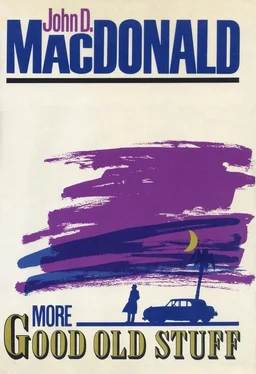
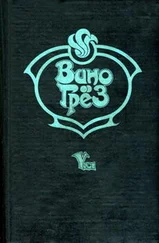
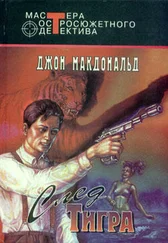
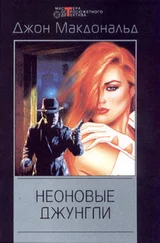
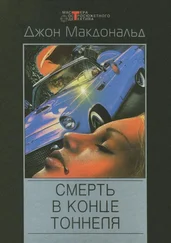
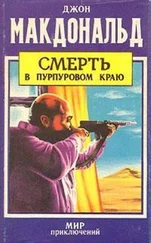



![Джон Макдональд - Wine of the Dreamers [= Planet of the Dreamers]](/books/430039/dzhon-makdonald-wine-of-the-dreamers-planet-of-thumb.webp)

